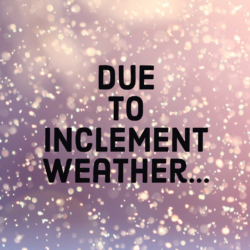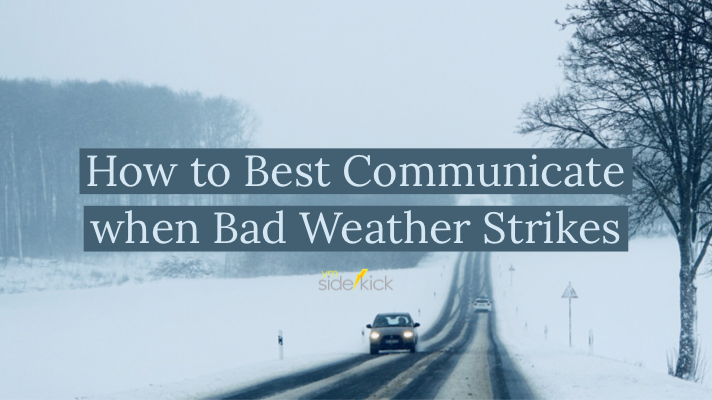How to Best Communicate when Bad Weather Strikes
Weather happens. In fact, bad weather happens all the time. When bad weather happens, it can have a direct impact on your Church. Floods, snowstorms, and power outages that result from lightning strikes are just some of the various bad weather situations that can cause your Church to cancel or alter Sunday morning plans.
So what do you do, as Church leaders, when bad weather strikes your area? More importantly, how do you communicate and to whom do you communicate what to when bad weather happens?
 For starters, Church leaders should communicate to all essential staffers what is going on. “Essential” staffers are ones who have direct ministry that will be impacted by a change. These staffers are children’s ministry and student ministers. They are also people directly involved with a set up team. Even if a final decision isn’t made, they should be given a heads up on what is going on. After all, if staffers don’t know what’s going on they won’t be able to answer questions from volunteers or others about what is happening.
For starters, Church leaders should communicate to all essential staffers what is going on. “Essential” staffers are ones who have direct ministry that will be impacted by a change. These staffers are children’s ministry and student ministers. They are also people directly involved with a set up team. Even if a final decision isn’t made, they should be given a heads up on what is going on. After all, if staffers don’t know what’s going on they won’t be able to answer questions from volunteers or others about what is happening.
After the staffers know they need to be able to communicate to their volunteers and those they are ministering to. The more they know, the better they are going to be prepared for what is going to happen and what to expect. Volunteers are the priority here and then when a final decision is made, those who you are ministering to need to be made aware. Even though a final decision may not be made yet, communicating to those you are ministering to that you are aware of the bad weather, that you are processing a decision and will make it known ASAP when a decisions is made would be very helpful.
Above all else, the key person(s) that need to know what is going on other than ministry leaders is the Social Media Director, Web Developer or Director of Communications. Whether they are all one position/people or multiple positions/people, these people need to know sooner rather than later so they communicate to the Church as a whole about what is happening. The sooner they can communicate something, the less people will wonder what is going on…and they will wonder.
The bottom line is simple: communicate, communicate, communicate. The more you can communicate from the top down the more people will be in the know what is happening. That helps staffers and volunteers be more prepared and they won’t have guess and speculate what is happening. You don’t have to have final decisions immediately, but keep them updated. It is much better to over communicated than under communicate. The more people know, the sooner they know, the better they are able to make informed decisions.
What do you think? What is the communication flow for when bad weather happens at your Church or ministry? Share your experiences below or on social media using #ymsidekick when you share.
Want to learn digital tools to expand your reach in ministry? Join the Digital Bootcamp Facebook Group!

